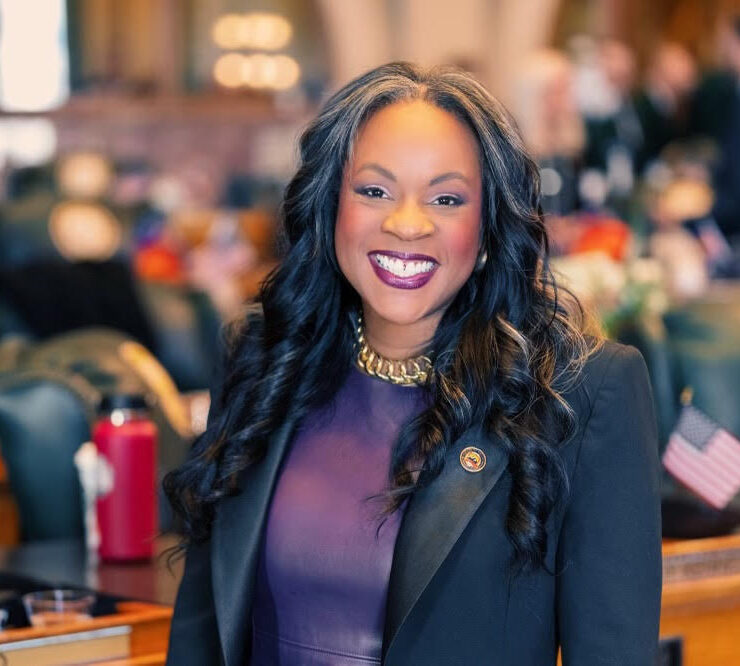The end of despair: Will Colorado ban forcing gay teens into ‘ex-gay’ therapy?

During his two years living in a ministry house in Massachusetts that practiced gay reparative therapy, Coloradan Tony Boyer had round-the-clock counseling, was told to cut himself off from his homosexual friends, and attended group therapy sessions twice a week.
He had come out just a year earlier. “I was very confused and nervous about everything,” Boyer said. “I was pretty dead-set on the idea that eventually these feelings that I was having about guys would just go away.”
The community Boyer lived in was comprised of residents who were struggling with other addictions as he worked to change his own sexual orientation. Though Boyer was an adult at the time – 20 years old – and had entered the house voluntarily, his experience was similar to what other youth throughout the United States experience as minors – forced into clinics by their parents – and had a lasting negative impact on Boyer.

“It has made it real difficult for me, mentally, moving forward, finding my path, getting a job, a lot of things that should be mainstays for most people,” Boyer said. “I was guilted into feeling like I was walking away from God’s path in my life.”
In October, California Gov. Jerry Brown signed into law a statewide ban on LGBT reparative therapy for children under 18. The first of its kind in the nation, the bill prohibits state-licensed therapists from working to change the sexual orientation of minors.
“These practices have no basis in science or medicine,” Brown tweeted shortly after signing the bill. “They will now be regulated to the dustbin of quackery.” A similar bill was recently introduced in Pennsylvania, and Colorado legislators are planning the same.
“I personally know of people who have been injured as the result of attempts to try to change who they are,” said Colorado State Sen. Pat Steadman, the openly-gay Denver Democrat who has led the charge for civil unions in Colorado, and advocates a similar charge to protect children from controversial forced efforts to turn them straight.
Colorado lawmakers, like Steadman, will introduce the bill in order to lay the groundwork to prohibit psychotherapists from practicing reparative therapy on minors. “I think the scientific evidence is clear that this [therapy] is harmful and not effective, and is something that should be outside the realm of professional standards of practice for mental health professionals in our state,” Steadman said.
The National Association for Research and Therapy of Homosexuality and other supporters of reparative therapy have sued California, claiming the therapy works, and that it’s irresponsible for California to end the practice that began almost three decades ago in the same state.
In 1973 – the year the American Psychiatric Association removed homosexuality from the Diagnostic and Statistical Manual, no longer considering it a mental disorder – the first gay reparative residential ministry, Love in Action, was founded in Marin County, California, to the north of San Francisco. Three years later, a large convention of ex-gay ministries was held in California to form Exodus International, a conglomerate of churches and organizations (including LIA) working to change the sexual orientation of gays and lesbians.
Steadman disagrees with NARTH’s position that California’s ban on reparative therapy for minors is irresponsible. “I think it is the province of the legislature to define professional standards for licensed health care or mental health practitioners,” Steadman said. “There have been other examples of psychotherapy techniques and treatments that the legislature has outlawed because they found them to be harmful.”
Steadman referred to a therapy called rebirthing, practiced in Colorado up until 2001 when a 10-year-old girl was killed during a session. “That practice was banned as a result, and I don’t think this is any different,” added Steadman.
The ban will not stop religious organizations from implementing their own programs. “If people want to still exercise their freedom of religion by offering these things in a way that is separate and apart from purporting to be mental health professionals,” said Steadman, “they can still do that.”
But for religious conservative organizations like NARTH and Focus on the Family, there’s little distinction between religious practice and scientific research into psychology and psychiatry. NARTH was founded in 1992 by a group of ex-gay reparative therapists arguing that homosexuality is caused in part by children feeling rejected by their parents. Endorsed by Focus, the organization recently pointed to a 2003 study by Dr. Robert Spitzer, which reported more than 200 gays and lesbians changed their orientation and had “good heterosexual functioning.”
The irony of the study is that Spitzer played a key role in getting the APA to remove homosexuality from its diagnostic manual in 1973. The paper was condemned by the APA as flawed. Spitzer later apologized for the study, adding that his findings were misinterpreted by NARTH. Still – it was enough for the advocates of reparative therapy to claim a scientific basis for their view that homosexuality can be changed.
Focus launched their own campaign in 1998 called Love Won Out, arguing that homosexuality was merely misplaced affection and could be corrected. The initiative was headed by John Paulk who was featured on 60 Minutes, Oprah, and on the cover of Newsweek testifying he himself had “recovered” from homosexuality. In 2000, he was caught drinking in a Washington D.C. gay establishment and lost his position with Focus. Love Won Out was absorbed by Exodus International in 2010.
Such stinging embarrassments – frequent, and increasingly publicized – have had their impact on the organizations: This year, the president of Exodus International, Alan Chambers, announced the organization will no longer support the notion of reparative therapy, though their mission statement still regards homosexuality as a sin to struggle against. The shift, while profound, is not universal. NARTH, with the support of Focus, continues to argue that homosexuality is not biologically determined and can be changed. Earlier this year Love in Action rebranded itself as Restoration Path, offering e-counseling where participants can be counseled through videos and Skype.
Boyer, who has since accepted his homosexuality since leaving the Massachusetts clinic, responded that a bill to ban reparative therapy in Colorado shouldn’t be limited to psychotherapists. “I don’t think it should be allowed at all. This type of so-called therapy was worse because it challenged the way I thought about my life and the control I had over my decisions.”
Boyer added, “It was horrifying. It was absolutely horrifying. Crippling really.”
The American Psychiatric Association, the American Medical Association, the American Academy of Pediatrics, and The American Psychological Association have all discredited gay reparative therapy as dangerous, the latter stating the following in a 2006 statement: “For over three decades the consensus of the mental health community has been that homosexuality is not an illness and therefore not in need of a cure.” The APA added, “Our further concern is that the positions espoused by NARTH and Focus create an environment in which prejudice and discrimination can flourish.”
Out Front contacted Focus and other local gay reparative therapists to comment on the potential ban, but all requests for an interview were declined. But Focus on the Family referred Out Front to a website affiliated with Focus – CitizenLink.com – stating that the organization “support(s) counseling and the availability of professional therapy options for unwanted homosexual attractions and behavior.” The website also stated, “Research confirms that permanent change away from a homosexual orientation is, indeed, possible.”
Unsurprisingly, Steadman takes issue with that understanding of the facts on reparative therapy.
“If NARTH wants to continue to sell people this bill of goods, they have a right to do it, just don’t call it psychotherapy,” Steadman said. “Don’t say that the mental health laws and professional standards in Colorado encompass this type of therapy because, if we’re successful, they won’t.”
What's Your Reaction?
Greetings. I’m Mike. People call me Mike. I’m just a gay guy trying to be creative before I’m kicked off this spinning, planet-sized spaceship hurdling through the void of space. Writing and photography are the creative outlets I spill my brain into when mental monsters start clawing at the back of my eyes. I only hope these articles provide readers with a few insights I’ve carefully gathered in cupped hands, cracked hands that have dueled for decades with these nebulous shadows that haunt so many lives. Plus, writing is a great way to pass the time on this planet-sized spaceship hurdling through the void of space.










